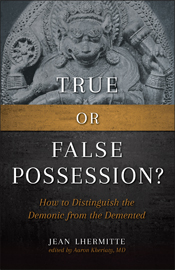How to Pray Well
User's Guide to Sunday, Oct. 27

Sunday, Oct. 27, is the 30th Sunday in Ordinary Time (Year C). Friday is Nov. 1, the Solemnity of All Saints, a holy day of obligation.
Mass Readings
Sirach 35:12-14, 16-18; Psalm 34:2-3, 17-19, 23; 2 Timothy 4:6-8, 16-18; Luke 18:9-14
Our Take
Today’s Gospel warns against bragging about your spiritual successes. Ironically, it comes after a second reading in which St. Paul seems to be bragging about his spiritual successes.
The difference between the two has a lot to teach us. "The Pharisee took up his position and spoke this prayer to himself," Jesus says in his parable. "O God, I thank you that I am not like the rest of humanity — greedy, dishonest, adulterous — or even like this tax collector. I fast twice a week, and I pay tithes on my whole income."
Here’s a guy who prays and who values righteousness. But notice how his prayer is addressed: to himself. Also notice the two comparisons he makes. He compares himself to "the rest of humanity." That is quite the statement of pride. He doesn’t just think he has been blessed; he sees himself as a special case in the whole of humanity. Then he compares himself to a specific individual, the tax collector in the Temple with him, adding judgmentalism to pride.
At first, St. Paul’s reading may sound similar: "I have competed well; I have finished the race; I have kept the faith. From now on, the crown of righteousness awaits me, which the Lord, the just judge, will award to me on that day, and not only to me, but to all who have longed for his appearance."
That ending phrase makes all the difference. Paul is definitely expecting great things from God, but he adds "not only to me." He is not seeing himself as someone set apart from "the rest of humanity."
He continues by giving full credit to whom it is due: "The Lord stood by me and gave me strength. The Lord will rescue me from every evil threat and will bring me safe to his heavenly Kingdom. To him be glory forever and ever. Amen."
St. Paul gives God the starring role in his life, not himself, and he ends a message addressed to his readers by addressing it to God. The Pharisee does the opposite, meaning to talk to God but talking to himself.
Jesus speaks of the tax collector because he focuses on God in prayer. "The tax collector stood off at a distance and would not even raise his eyes to heaven, but beat his breast and prayed, ‘O God, be merciful to me a sinner,’" says Jesus — and praises him for it. As the first reading says, "The prayer of the lowly pierces the clouds; it does not rest till it reaches its goal."
Which position do we find ourselves in? We may need to throw ourselves on God’s mercy like the tax collector — or we may have a grateful story of grace to tell about our lives. St. Augustine said of the Pharisee in this story, "His sin was not that he gave God thanks, but that he asked for nothing further." We need not pretend we are one or the other. As the first reading puts it, God in his justice is "not unduly partial toward the weak, yet he hears the cry of the oppressed."
One thing is for certain: We should be praying as God wants us to, honestly presenting ourselves to him and opening our lives to his grace.
Tom and April Hoopes write from Atchison, Kansas,
where Tom is writer in residence at Benedictine College.
- Keywords:
- Oct. 20-Nov. 2, 2013

















